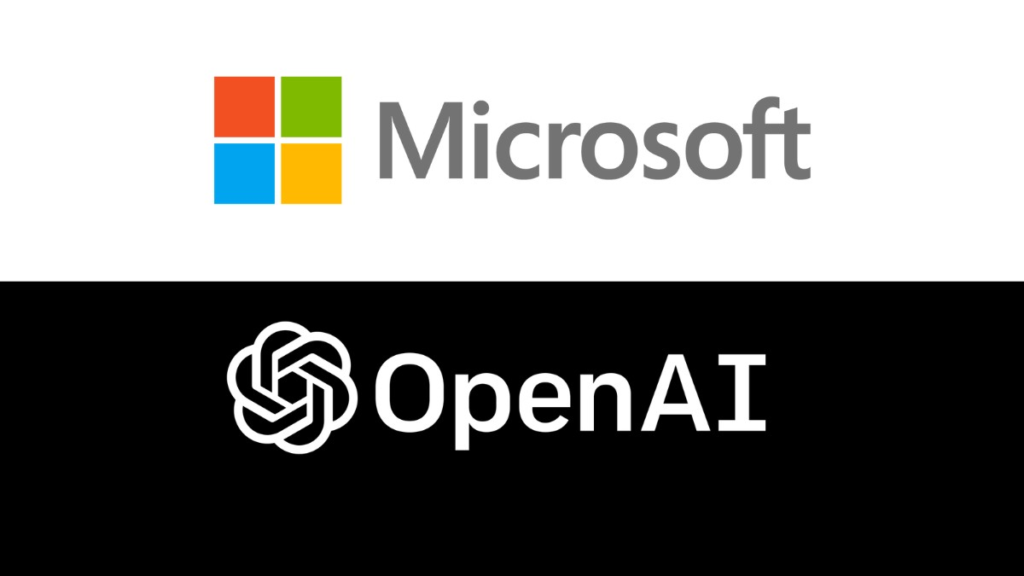In the ever-evolving landscape of artificial intelligence, two major players have captured the spotlight: Microsoft and OpenAI. This comprehensive review delves into Microsoft’s achievements, its current standing, and the intense global competition it faces from OpenAI.
Microsoft’s Trail of Achievements:
- Founding Years: Microsoft, founded by Bill Gates and Paul Allen in 1975, initially focused on software development for personal computers. The company rapidly ascended to prominence with the introduction of MS-DOS, the operating system that laid the foundation for future Windows iterations.
- Windows Era: The launch of Windows 95 marked a pivotal moment, transforming Microsoft into a global tech giant. The Windows operating system became ubiquitous, dominating the personal computing landscape.
- Productivity Suite: Microsoft’s Office suite, including Word, Excel, and PowerPoint, became essential tools for businesses and individuals worldwide, solidifying Microsoft’s presence in the software market.
- Enterprise Dominance: The company’s foray into enterprise solutions further expanded its influence. Microsoft Azure, a cloud computing service, emerged as a frontrunner in the competitive cloud services market.
Global AI Competition: Microsoft vs. OpenAI:
- Strategic Partnership: Microsoft’s investment of over $13 billion for a 49% stake in OpenAI highlighted its commitment to advancements in artificial intelligence. This strategic partnership aimed to leverage OpenAI’s expertise to enhance Microsoft’s AI capabilities.
- Leadership Changes: The recent shift in leadership at OpenAI, with the departure of Sam Altman as CEO, led to Microsoft swiftly appointing him and former OpenAI President Greg Brockman to head a cutting-edge AI research lab. This move signaled Microsoft’s dedication to staying at the forefront of AI innovation.
- Stock Surge: Investors responded positively to Microsoft’s strategic moves, with the company’s stocks rebounding impressively. Following a brief dip after Altman’s departure from OpenAI, Microsoft’s shares surged to a record high, reflecting optimism in the market.
Challenges and Considerations:
- Intellectual Property Concerns: The collaboration with OpenAI raises questions about intellectual property, especially as former OpenAI employees, including Altman, join Microsoft. Striking a balance between collaboration and safeguarding proprietary technology will be crucial.
- Competing for Talent: With both Microsoft and OpenAI vying for top-tier talent in the AI space, the competition for skilled professionals could intensify. The ability to attract and retain exceptional minds will play a pivotal role in shaping the trajectory of both companies.
Future Outlook:
- Innovation Focus: Microsoft’s ongoing commitment to innovation, evidenced by its continuous evolution and strategic partnerships, positions it as a key player in shaping the future of AI. The company’s investment in OpenAI underscores its determination to push the boundaries of AI research.
- Navigating Regulatory Challenges: As AI technologies face increasing scrutiny and regulation, both Microsoft and OpenAI will need to navigate the evolving regulatory landscape. This includes addressing ethical considerations, privacy concerns, and potential regulatory frameworks.
In conclusion, Microsoft’s journey from its founding years to its current position as a global tech powerhouse reflects a legacy of innovation and adaptability. The strategic moves in the realm of artificial intelligence, coupled with the ongoing global competition with OpenAI, set the stage for a dynamic future. The synergy between these two industry giants promises not only advancements in AI but also a transformative impact on the technological landscape.

